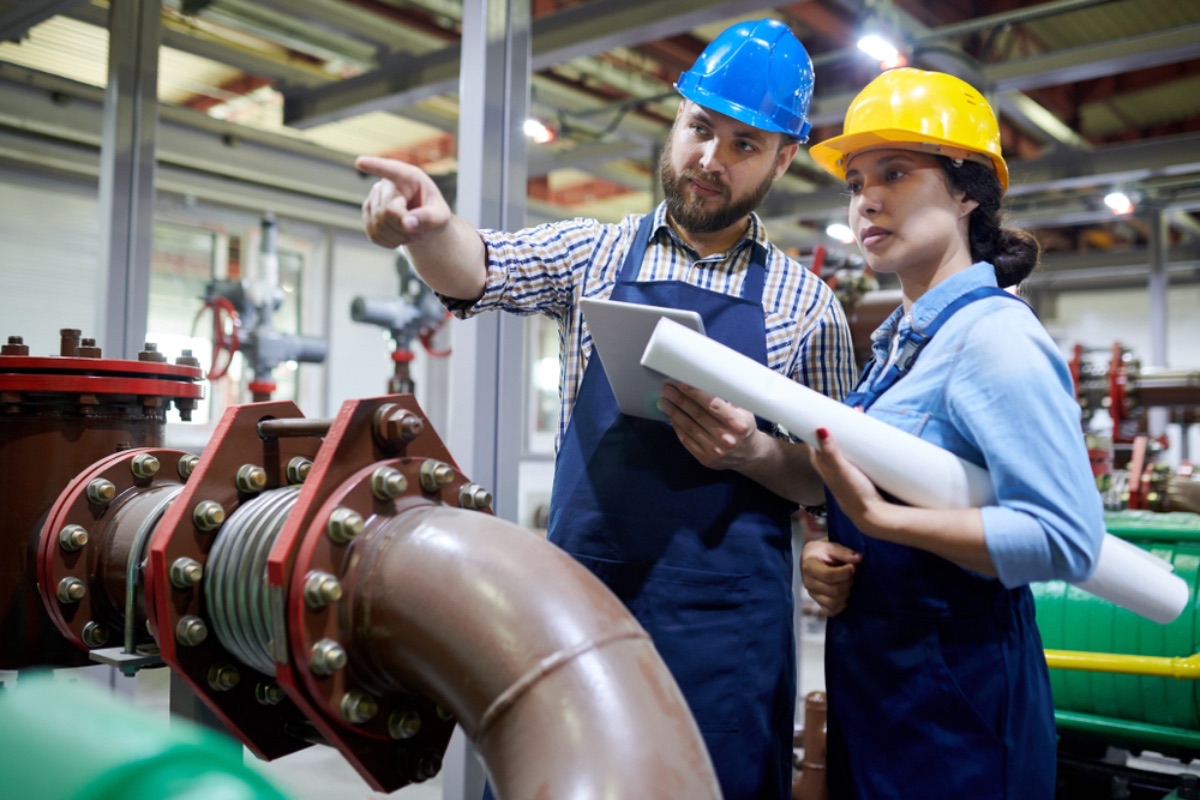

Articles
What Is A Plumbing Engineer
Modified: October 28, 2024
Looking for informative articles about the role and responsibilities of a plumbing engineer? Explore our comprehensive collection of plumbing engineering articles for valuable insights and expert tips.
(Many of the links in this article redirect to a specific reviewed product. Your purchase of these products through affiliate links helps to generate commission for Storables.com, at no extra cost. Learn more)
Introduction
Plumbing is an essential aspect of any building, whether residential or commercial. It involves the installation, repair, and maintenance of water supply systems, drainage systems, and other fixtures related to water flow. While many people are familiar with plumbers who fix leaky faucets or unclog drains, there is another crucial role in the plumbing industry that often goes unnoticed – the plumbing engineer.
A plumbing engineer is a professional who specializes in the design and planning of plumbing systems for buildings. They are responsible for creating efficient and sustainable solutions to ensure the proper functioning of water and sewage systems. In this article, we will explore the role of a plumbing engineer in detail, discussing their responsibilities, qualifications, and the tools they use.
Plumbing engineers play a vital role in the construction and maintenance of buildings. They work alongside architects, contractors, and other professionals to ensure that the building’s plumbing systems meet regulatory standards and fulfill the needs of its occupants. Their expertise is crucial in designing plumbing systems that are safe, reliable, and optimized for efficiency.
In addition to designing plumbing systems, plumbing engineers are also responsible for overseeing the installation and testing of these systems. They collaborate with contractors and plumbers to ensure that everything is installed correctly and functions properly. If any issues arise during the installation or after the building is occupied, the plumbing engineer will troubleshoot and provide guidance for repairs or modifications.
To become a plumbing engineer, individuals typically need to complete a degree in mechanical engineering or a related field. They also need to obtain relevant industry certifications and licenses, depending on their jurisdiction. Education and training provide them with the necessary knowledge and skills to design plumbing systems, understand building codes and regulations, and utilize the latest technologies and tools.
Plumbing engineers rely on a variety of tools and equipment to carry out their work effectively. These may include computer-aided design (CAD) software, pipe sizing calculators, pressure testing devices, and more. The use of advanced tools and technologies allows plumbing engineers to design efficient and cost-effective systems while minimizing the risk of errors or inefficiencies.
Building codes and regulations play a significant role in the work of plumbing engineers. They need to stay updated with the latest codes and standards to ensure that their designs comply with safety guidelines and legal requirements. Plumbing engineers must have a deep understanding of building codes and regulations to avoid any potential issues or violations.
Plumbing systems have evolved significantly over the years, thanks to technological advancements and innovation. Plumbing engineers need to stay updated on the latest trends and emerging technologies in the industry. This allows them to incorporate sustainable and energy-efficient practices into their designs while ensuring the comfort and well-being of the building’s occupants. Constant learning and growth are essential for plumbing engineers to provide the best possible solutions to their clients.
Lastly, collaboration is a crucial aspect of a plumbing engineer’s role. They work closely with architects, electrical engineers, structural engineers, and other professionals to ensure seamless integration of plumbing systems with the overall building design. Clear communication and coordination are essential to address any conflicts or challenges that may arise during the construction process.
Overall, plumbing engineers play a vital role in the construction industry by designing, implementing, and maintaining efficient plumbing systems. Through their expertise and dedication, they contribute to the safety, sustainability, and comfort of buildings. As the demand for eco-friendly and energy-efficient practices continues to grow, the role of plumbing engineers will become increasingly important in shaping the buildings of the future.
Key Takeaways:
- Plumbing engineers play a crucial role in designing, implementing, and maintaining efficient plumbing systems, ensuring safety, sustainability, and comfort in buildings.
- The career outlook for plumbing engineers is promising, driven by the increasing emphasis on sustainability, advancements in plumbing technologies, and the growing demand for water management expertise.
Read more: What Is BIM Engineering?
Role of a Plumbing Engineer
Plumbing engineers are highly skilled professionals who are specialized in the design and planning of plumbing systems for buildings. They play a critical role in ensuring that the water supply and waste management systems in a building function efficiently and meet the necessary safety and regulatory standards. Let’s take a closer look at the key responsibilities of a plumbing engineer:
- Designing plumbing systems: One of the primary responsibilities of a plumbing engineer is to design the plumbing systems for buildings. They work closely with architects and other design professionals to create a comprehensive plan that encompasses water supply lines, drainage systems, and fixtures. The design must be practical, cost-effective, and adhere to local building codes and regulations.
- Evaluating project requirements: Before starting a project, plumbing engineers assess the needs and requirements of the building or facility. They consider factors such as water demand, plumbing fixtures, and the complexity of the plumbing system. This evaluation helps them determine the appropriate design and materials needed for the project.
- Calculating system capacities: Plumbing engineers calculate the capacities of the water supply and drainage systems to ensure they can meet the demands of the building. This involves determining pipe sizes, flow rates, and pressure requirements. Accurate calculations are crucial to ensure that the plumbing system functions optimally and avoids issues such as low water pressure or drain backups.
- Collaborating with other professionals: Plumbing engineers work closely with various professionals involved in the construction process. They coordinate with architects, structural engineers, electrical engineers, and contractors to ensure that the plumbing system integrates seamlessly with the rest of the building’s infrastructure. Collaboration with these professionals facilitates efficient construction and minimizes conflicts or errors during the project.
- Ensuring compliance with regulations: Plumbing engineers must have a deep understanding of local building codes and regulations pertaining to plumbing systems. They ensure that the designs and installations comply with these regulations to guarantee the safety and well-being of the building’s occupants. Compliance includes ensuring accessibility for people with disabilities, proper ventilation, and adherence to health and safety regulations.
- Keeping up with industry advancements: The plumbing industry is constantly evolving with new technologies and innovations. Plumbing engineers need to stay updated with the latest advancements in plumbing systems, materials, and equipment. This knowledge allows them to design efficient and sustainable systems that meet the evolving needs of modern buildings.
- Providing guidance during construction: Plumbing engineers play a supervisory role during the construction process. They inspect the plumbing installations, provide guidance to contractors and plumbers, and ensure that the work is being carried out according to the approved design and specifications. Their expertise and oversight help minimize errors, ensure quality workmanship, and prevent potential issues in the future.
- Conducting system tests and inspections: Once the plumbing system is installed, plumbing engineers conduct tests and inspections to ensure its proper functioning. This includes pressure testing, water flow measurements, and assessing the performance of fixtures. Any issues or discrepancies discovered during testing are addressed promptly to ensure the system meets the desired performance standards.
Overall, plumbing engineers play a crucial role in the construction and maintenance of buildings. Their expertise in designing and planning plumbing systems ensures efficient water supply and waste management, helps conserve resources, and provides a safe and comfortable environment for the building’s occupants.
Responsibilities
A plumbing engineer is responsible for various tasks and duties related to the design, installation, and maintenance of plumbing systems in buildings. Let’s delve into the key responsibilities that a plumbing engineer fulfills:
- Designing plumbing systems: One of the primary responsibilities of a plumbing engineer is to design efficient and functional plumbing systems for buildings. They utilize their expertise to create plans that incorporate water supply lines, drainage systems, and fixtures, keeping in mind factors such as water demand, flow rates, and building codes.
- Ensuring compliance: Plumbing engineers are responsible for ensuring that the plumbing system designs and installations comply with the relevant building codes, regulations, and industry standards. They must have a comprehensive understanding of these requirements and apply them while designing and supervising the construction process.
- Collaborating with other professionals: Plumbing engineers work in close collaboration with architects, civil engineers, electrical engineers, and contractors to ensure that the plumbing system integrates seamlessly with the overall building design. They communicate and coordinate with these professionals to address any conflicts or challenges that may arise during the construction process.
- Preparing project specifications: Plumbing engineers create detailed project specifications and documents that outline the materials, equipment, and installation techniques required for the plumbing system. These specifications provide guidance to contractors and plumbers during the installation process and help ensure quality workmanship.
- Performing calculations: Plumbing engineers utilize mathematical calculations to determine the sizing of pipes, water flow rates, pressure requirements, and other system capacities. These calculations ensure that the plumbing system meets the specific needs of the building and functions optimally without any issues such as low water pressure or drainage problems.
- Selecting appropriate materials and equipment: A plumbing engineer is responsible for selecting the right materials and equipment for plumbing installations. They consider factors such as the type of building, water quality, and durability requirements, ensuring that the chosen materials and equipment are reliable, cost-effective, and compatible with the plumbing system design.
- Overseeing installation and testing: Plumbing engineers play a supervisory role during the installation phase of the plumbing system. They oversee the work of contractors and plumbers to ensure that the installations are carried out according to the approved design and specifications. They also conduct tests and inspections to verify the proper functioning of the system.
- Maintaining and upgrading systems: Plumbing engineers are involved in the ongoing maintenance and optimization of plumbing systems. They assess the performance of the system, identify any issues or inefficiencies, and recommend necessary repairs or upgrades. This proactive approach ensures that the plumbing system continues to operate effectively and efficiently throughout the lifespan of the building.
- Staying informed about industry advancements: To excel in their role, plumbing engineers need to stay updated with the latest advancements in plumbing technologies, materials, and sustainable practices. They continually educate themselves about emerging trends and industry best practices to incorporate innovative solutions into their designs.
These responsibilities showcase the diverse and crucial role that plumbing engineers play in the construction and maintenance of buildings. Their expertise ensures the proper functioning and safety of plumbing systems, contributing to the overall comfort and well-being of occupants.
Education and Training
Becoming a plumbing engineer requires a combination of education, training, and practical experience. Let’s explore the steps involved in pursuing a career as a plumbing engineer:
1. Obtain a relevant degree: The first step towards becoming a plumbing engineer is to complete a bachelor’s degree in mechanical engineering or a related field. While a specific degree in plumbing engineering may not be available, a degree in mechanical engineering provides a strong foundation in the core principles and concepts of engineering. This education equips future plumbing engineers with the necessary technical skills to design and analyze plumbing systems.
2. Gain practical experience: In addition to formal education, practical experience is essential to become a proficient plumbing engineer. Many universities and engineering programs offer cooperative education or internship opportunities, where students can gain hands-on experience working with professional engineers in the field. These experiences provide valuable insights into the practical aspects of plumbing engineering and help develop problem-solving skills.
3. Acquire industry certifications: To enhance their credibility and marketability, plumbing engineers can pursue industry certifications. These certifications validate their knowledge and expertise in specific areas of plumbing engineering. Examples of relevant certifications include the Certified Plumbing Design Technician (CPDT) offered by the American Society of Plumbing Engineers (ASPE) and the Plumbing Design Engineer (CPDE) certification by the American Society of Sanitary Engineering (ASSE).
4. Stay updated with building codes and regulations: Plumbing engineers must have a comprehensive understanding of local building codes and regulations related to plumbing systems. This knowledge is essential to ensure that their designs comply with the necessary safety and performance standards. Keeping up with these codes requires ongoing learning and staying informed about any amendments or updates.
5. Continual professional development: Given the evolving nature of the plumbing industry, it’s crucial for plumbing engineers to maintain a commitment to continuous learning and professional development. Attending conferences, workshops, and seminars related to plumbing engineering allows them to stay updated with the latest technologies, practices, and trends in the field. Engaging in professional organizations, such as ASPE or the International Association of Plumbing and Mechanical Officials (IAPMO), also provides valuable networking opportunities and access to educational resources.
6. Obtain professional licensure: Licensing requirements for plumbing engineers vary by jurisdiction. In many cases, a professional engineer (PE) license is required to practice as a plumbing engineer. To obtain a PE license, individuals must meet educational requirements, pass a comprehensive exam, and accumulate a certain number of years of professional experience. The licensing exam assesses the candidate’s knowledge of engineering principles, design practices, and ethical standards.
7. Embrace lifelong learning: Plumbing engineering is a field that constantly evolves and embraces new technologies. As a result, plumbing engineers should adopt a mindset of lifelong learning. They should continually seek out opportunities to expand their knowledge, explore emerging trends, and stay updated with the latest advancements in plumbing systems and technologies to provide the best possible solutions to their clients.
By completing the necessary education, gaining practical experience, obtaining industry certifications, and staying updated with industry trends, aspiring plumbing engineers can develop the skills and knowledge required to design and manage plumbing systems effectively. This combination of education and practical experience empowers plumbing engineers to create safe, efficient, and sustainable plumbing solutions for buildings.
Skills and Qualifications
To excel as a plumbing engineer, individuals need to possess a combination of technical skills, industry knowledge, and personal qualities. Let’s explore the key skills and qualifications that are important for a successful career in plumbing engineering:
1. Technical skills: Plumbing engineers must have a strong foundation in engineering principles and possess technical skills specific to plumbing systems. These skills include proficiency in computer-aided design (CAD) software for designing and modeling plumbing systems, knowledge of hydraulic calculations, pipe sizing, and pressure testing. Understanding plumbing codes and regulations is also essential as it ensures compliance with industry standards.
2. Analytical and problem-solving skills: Plumbing engineers must be able to analyze complex plumbing system requirements and develop practical solutions. They should possess strong problem-solving skills to address issues that may arise during the design, installation, or maintenance process. The ability to identify potential problems, assess risks, and find innovative solutions is essential for effective plumbing engineering.
3. Strong attention to detail: Precision is crucial in plumbing engineering. Plumbing engineers must pay close attention to every detail of the design and installation process to ensure accuracy and eliminate potential errors or complications. From pipe sizing to fixture placement, even minor mistakes can have significant consequences, which is why meticulous attention to detail is crucial.
4. Communication and collaboration: Effective communication is essential for plumbing engineers, as they often work in interdisciplinary teams. They need to clearly convey their design plans, project specifications, and expectations to architects, contractors, and other professionals involved in the construction process. Collaborating with team members and actively listening to their input is vital for seamless integration of plumbing systems with other building components.
5. Knowledge of plumbing materials and equipment: Plumbing engineers should have a good understanding of different types of plumbing materials and equipment. This knowledge allows them to select the most appropriate materials based on durability, compatibility, and cost-effectiveness. Familiarity with plumbing fixtures, valves, pumps, and other equipment is necessary to make informed decisions during the design and installation phases.
6. Leadership and project management: Plumbing engineers often lead teams during the design and construction phases of a project. They need strong leadership skills to coordinate with other professionals, delegate tasks, and ensure that the plumbing system is installed correctly. Project management skills are also valuable to effectively manage timelines, budgets, and resources.
7. Knowledge of sustainability practices: With the growing emphasis on sustainability, plumbing engineers should be well-versed in sustainable plumbing practices. This includes knowledge of water conservation techniques, energy-efficient systems, and the ability to design plumbing systems that minimize environmental impact.
8. Professional certifications and licenses: Obtaining relevant certifications and licenses enhances the qualifications of a plumbing engineer. Certifications such as Certified Plumbing Design Technician (CPDT) or Plumbing Design Engineer (CPDE) demonstrate specialized knowledge and expertise in plumbing engineering. Additionally, acquiring a professional engineer (PE) license provides credibility and legal authorization to practice as a plumbing engineer in certain jurisdictions.
9. Adaptability and continuous learning: The plumbing industry constantly evolves with new technologies, codes, and regulations. Plumbing engineers should have an adaptable mindset and be open to learning and incorporating new methods and technologies into their work. Staying updated with industry trends through continuing education and professional development helps plumbing engineers stay at the forefront of their field.
In summary, a successful plumbing engineer possesses a combination of technical skills, problem-solving abilities, effective communication, and a commitment to ongoing learning. With these skills and qualifications, plumbing engineers can design and implement efficient and sustainable plumbing systems that meet the needs of both clients and the industry at large.
Tools and Equipment
Plumbing engineers rely on a variety of tools and equipment to carry out their work effectively. These tools enable them to design, analyze, and implement plumbing systems in buildings. Let’s explore some of the essential tools and equipment that plumbing engineers commonly use:
1. Computer-Aided Design (CAD) Software: CAD software plays a crucial role in designing and modeling plumbing systems. Plumbing engineers use CAD software to create detailed plans and schematics, allowing them to visualize the layout of pipes, fixtures, and drainage systems. This software enables precise measurements, calculations, and data organization to ensure accuracy in the design process.
2. Pipe Sizing Calculators: Proper sizing of pipes is crucial for the efficient functioning of plumbing systems. Pipe sizing calculators help plumbing engineers determine the optimal diameter and capacity of pipes for various applications. These calculators consider factors such as flow rate, pressure, and the length of the pipe to ensure that the system operates at the desired performance level.
3. Pressure Testing Devices: Plumbing engineers utilize pressure testing devices to assess the integrity and performance of plumbing systems. These devices apply pressure to the system to identify any leaks or weaknesses. Pressure testing helps ensure that the system can handle the required water pressure without failure and guarantees that there are no potential issues when the system is operational.
4. Plumbing Estimation Software: Estimation software helps plumbing engineers calculate material quantities, costs, and labor requirements for plumbing projects. This software streamlines the estimation process, allowing engineers to generate accurate project cost estimates efficiently. It considers factors such as pipe lengths, fixture quantities, and labor rates to provide comprehensive cost breakdowns.
5. Plumbing Code References: Plumbing engineers need to stay updated with the latest building codes and regulations. Printed or digital copies of plumbing codes and references provide quick access to the specific requirements and standards that need to be followed. They serve as a valuable resource during the design process to ensure compliance with safety regulations and industry best practices.
6. Plumbing Tools: Plumbing engineers utilize a range of hand tools and equipment for various tasks. These tools include pipe cutters, wrenches, pliers, and soldering equipment for pipe joining. They may also use pressure gauges, flow meters, and thermometers for system testing and diagnostics. Having a well-stocked toolbox allows plumbing engineers to handle routine maintenance, inspections, and minor repairs efficiently.
7. Building Information Modeling (BIM) Software: BIM software facilitates the coordination and integration of plumbing systems with other building components. Plumbing engineers utilize BIM software to collaborate with architects, structural engineers, and other professionals involved in the construction process. BIM software helps visualize the entire building and identify potential clashes or conflicts between plumbing systems and other structural elements before construction begins.
8. Testing and Inspection Tools: Plumbing engineers use a variety of testing and inspection tools to assess the performance and functionality of plumbing systems. These tools may include pressure meters, water flow meters, moisture detectors, and cameras for inspecting drains or inaccessible parts of the system. These tools aid in identifying issues, verifying compliance with standards, and ensuring the long-term reliability of the plumbing system.
9. Safety Equipment: Safety is paramount in plumbing engineering. Plumbing engineers should possess personal protective equipment (PPE) such as gloves, safety glasses, and hard hats to protect themselves during site visits and construction inspections. Additionally, they should adhere to safety protocols and guidelines to minimize the risk of accidents or injuries.
These tools and equipment are essential for plumbing engineers to design, analyze, and implement plumbing systems efficiently. By utilizing these tools and staying abreast of technological advancements in the field, plumbing engineers can deliver high-quality designs and ensure the optimal functioning of plumbing systems in buildings.
A plumbing engineer is a professional who designs and oversees the installation of plumbing systems in buildings. They ensure that the systems meet safety and regulatory standards while also being efficient and cost-effective.
Building Codes and Regulations
Building codes and regulations play a crucial role in the work of plumbing engineers. These codes and regulations are a set of guidelines and standards that govern the design, installation, and maintenance of plumbing systems in buildings. Let’s delve into the significance of building codes and regulations for plumbing engineers:
Ensuring Safety and Occupant Health: Building codes and regulations prioritize the safety and well-being of building occupants. Plumbing engineers must design plumbing systems that meet specific safety standards to prevent potential hazards such as water contamination, leaks, or improper drainage. Codes and regulations outline requirements for proper ventilation, water quality, fire protection, and accessibility, ensuring that the plumbing systems in buildings are safe and healthy for occupants.
Compliance with Industry Standards: Building codes and regulations provide a framework to ensure that plumbing systems meet industry-wide standards. These standards cover various aspects, such as pipe sizing, fixture placement, water pressure, and drainage requirements. Plumbing engineers must stay updated with the latest codes and regulations to ensure that their design plans comply with the specific guidelines set forth by relevant authorities.
Fire Protection Measures: Plumbing systems contribute to fire protection in buildings. Building codes outline requirements for the installation of sprinkler systems, fire hydrants, fire suppression systems, and other fire protection measures. Plumbing engineers need to design plumbing systems that support efficient and effective fire protection while adhering to the guidelines provided by fire safety codes.
Water Efficiency and Conservation: With a growing focus on sustainability, building codes and regulations increasingly emphasize water efficiency and conservation. Plumbing engineers must design systems that minimize water waste by incorporating features such as low-flow fixtures, rainwater harvesting systems, and efficient irrigation systems. Compliance with water efficiency regulations helps reduce the environmental impact of plumbing systems and contributes to overall resource conservation.
Accessibility Considerations: Building codes and regulations include provisions for accessibility to accommodate individuals with disabilities. Plumbing engineers need to ensure that the design of plumbing systems meets accessibility requirements, such as providing accessible toilet facilities, grab bars, properly positioned fixtures, and adequate space for maneuverability. This ensures that plumbing systems are inclusive and usable for all individuals, regardless of their physical abilities.
Legal Compliance: Compliance with building codes and regulations is not only essential for safety and functionality but also for legal compliance. Failure to meet the specified standards can result in penalties, fines, or even legal consequences. Plumbing engineers have a responsibility to design plumbing systems that adhere to the necessary codes and regulations, ensuring compliance with all applicable laws and regulations.
Inspections and Approvals: Plumbing engineers work closely with building officials and inspectors to ensure that the plumbing system designs comply with codes and regulations. Building officials review and inspect the plumbing plans and installations to ensure compliance before issuing approvals and permits. Collaborating with these authorities is essential to obtain the necessary approvals for construction and ensure that the plumbing system meets all required standards.
Staying Updated: Building codes and regulations are periodically updated to reflect new technologies, emerging trends, and advancements in the plumbing industry. Plumbing engineers must stay up to date with these changes to ensure their designs and installations remain compliant. This includes maintaining awareness of code amendments, attending educational seminars and training sessions, and actively participating in industry organizations to stay informed about any updates or revisions to building codes.
Overall, building codes and regulations are instrumental in guiding the design and installation of plumbing systems. Plumbing engineers must have a comprehensive understanding of these codes to ensure the safety, functionality, and legal compliance of the plumbing systems in buildings they work on.
Plumbing Systems and Technologies
Plumbing systems and technologies continue to evolve, driven by advancements in engineering, sustainability, and the need for efficient water management. Plumbing engineers play a crucial role in staying updated with these developments and incorporating them into their designs. Let’s delve into the key plumbing systems and technologies that plumbing engineers work with:
Water Supply Systems: Plumbing engineers design and implement water supply systems that provide clean and reliable water to buildings. These systems include pipes, valves, and pumps that distribute water throughout the building, ensuring adequate supply to fixtures such as sinks, showers, and toilets. Plumbing engineers consider factors such as water pressure, flow rates, and pipe sizing to deliver optimal performance and efficiency.
Drainage Systems: Drainage systems play a critical role in safely removing wastewater from buildings. Plumbing engineers design drainage systems that ensure the efficient flow of wastewater to municipal sewer lines or septic systems. Gravity and venting principles are applied to promote smooth drainage and prevent the accumulation of harmful gases. Advanced technologies, such as ventless traps and siphonic drainage systems, offer innovative solutions to enhance drainage efficiency.
Stormwater Management: With increasing concerns about stormwater runoff and its impact on the environment, plumbing engineers are incorporating sustainable stormwater management practices into their designs. These practices aim to capture and treat rainwater on-site, mitigating the strain on public drainage systems and preventing water pollution. Techniques such as green roofs, rain gardens, and permeable pavement are employed to manage stormwater effectively.
Water Treatment and Filtration: Plumbing engineers are responsible for designing water treatment and filtration systems that ensure the delivery of clean and potable water. These systems remove impurities, sediments, and chemicals from the water supply to protect the health and well-being of building occupants. Advanced technologies, including UV disinfection, reverse osmosis, and activated carbon filters, enhance water treatment efficiency and effectiveness.
Smart Plumbing Systems: Smart technologies are revolutionizing the plumbing industry, allowing for the integration of internet-connected devices, sensors, and automation in plumbing systems. Plumbing engineers are incorporating smart plumbing systems that enable remote monitoring, automated leak detection, and water flow control. These systems help conserve water, reduce energy consumption, and provide real-time insights for efficient maintenance and management.
Water Efficiency Measures: Plumbing engineers are actively involved in designing water-efficient plumbing systems to minimize water waste. This includes the use of low-flow fixtures, such as toilets and faucets, that reduce water consumption without compromising functionality. Greywater recycling systems are also gaining popularity, allowing building occupants to reuse water from showers and sinks for irrigation purposes.
Solar Water Heating: Plumbing engineers are adopting solar water heating systems as an eco-friendly and cost-effective alternative to traditional water heating methods. These systems use solar collectors to harness the sun’s energy and heat water for domestic use. Plumbing engineers design and integrate solar water heating systems into the building’s plumbing infrastructure to reduce energy consumption and carbon emissions.
Water Leak Detection Systems: Plumbing engineers utilize advanced water leak detection technologies to identify and address leaks in plumbing systems. These systems employ sensors that monitor water flow, pressure, or moisture levels to detect leaks or abnormal water usage. Early leak detection helps prevent water damage, conserve water, and minimize costly repairs.
Building Information Modeling (BIM): BIM technology enables plumbing engineers to incorporate 3D modeling and coordination capabilities into their designs. BIM ensures accurate clash detection between plumbing systems and other building components, reducing errors during construction. This technology allows for better collaboration among architects, structural engineers, and other professionals, resulting in seamless integration of plumbing systems into the building design.
As technology continues to advance, plumbing engineers must stay updated with emerging systems and technologies. This enables them to design sustainable, efficient, and technologically advanced plumbing systems that meet the evolving needs of buildings and contribute to a greener and more sustainable future.
Collaboration with Other Professionals
Effective collaboration with other professionals is essential for plumbing engineers to ensure the seamless integration of plumbing systems into the overall building design. Plumbing engineers work closely with architects, electrical engineers, structural engineers, contractors, and other professionals involved in the construction process. Let’s explore the key aspects of collaboration that plumbing engineers engage in:
Early Project Involvement: Plumbing engineers collaborate with architects and other design professionals from the early stages of a project. By participating in project meetings and design charrettes, plumbing engineers gain a comprehensive understanding of the overall vision and goals for the building. This early involvement allows them to contribute their expertise in plumbing system design and ensure that the plumbing systems align with the architectural and structural requirements of the building.
Seamless Integration of Plumbing Systems: Plumbing engineers work closely with architects and structural engineers to integrate plumbing systems into the building’s design. They consider factors such as space allocation for plumbing infrastructure, fixture placement, and coordination with structural elements. Aligning plumbing systems with the overall design minimizes conflicts and ensures efficient installation, maintenance, and access to plumbing components.
Clear Communication: Collaborating effectively requires clear and open communication between all professionals involved in the project. Plumbing engineers need to clearly communicate their design plans, project specifications, and expectations to architects, contractors, and other team members. By fostering open lines of communication, potential conflicts or design discrepancies can be addressed early on, saving time and minimizing errors during the construction process.
Coordination of Systems: Plumbing systems do not operate in isolation; they must work harmoniously with other building systems, such as electrical, HVAC, and fire protection systems. Plumbing engineers collaborate closely with electrical engineers, for example, when designing access points for electrical conduits and coordinating pipe routing to avoid interference. Coordinating the integration of various systems ensures efficient use of space and optimizes the overall functionality of the building.
Design and Construction Reviews: Collaborative design and construction reviews involve plumbing engineers and other professionals collectively analyzing and reviewing design plans and construction progress. These reviews provide opportunities to identify potential conflicts, confirm compliance with codes and regulations, and address any issues that may arise during the project. By collaborating in these reviews, problems can be resolved promptly and modifications can be made to ensure the successful completion of the plumbing system installation.
Professional Networking: Active participation in professional organizations and industry events fosters opportunities for networking and collaboration among plumbing engineers and other professionals. Engaging with organizations such as the American Society of Plumbing Engineers (ASPE) or attending industry conferences allows plumbing engineers to connect with architects, contractors, and suppliers. Networking enhances collaboration by facilitating knowledge sharing, discussing best practices, and building relationships for future projects.
Continual Communication and On-site Coordination: Throughout the construction process, plumbing engineers collaborate closely with contractors, plumbers, and other trade professionals on-site. This collaboration involves reviewing installation progress, addressing any challenges, and ensuring that the plumbing system is installed according to design specifications. Continual communication and on-site coordination help resolve any unforeseen issues promptly and ensure the successful implementation of the plumbing system.
Post-Construction Support: Collaboration does not end with the completion of construction. Plumbing engineers provide post-construction support by assisting with system testing, commissioning, and addressing any warranty or maintenance concerns. They work with building owners and facility management teams to ensure that the plumbing systems continue to function optimally and address any future needs or modifications that may arise.
Successful collaboration with other professionals is vital for plumbing engineers to design and implement plumbing systems that align with the overall building design, meet industry standards, and fulfill the needs of the building’s occupants. By fostering effective communication, engaging in collaborative design and construction reviews, leveraging professional networks, and providing continued support, plumbing engineers enhance the overall success of the construction project.
Read more: What Is A Civil Engineering Technician
Career Outlook
The career outlook for plumbing engineers is promising, with strong demand for their specialized skills and expertise in the construction industry. Plumbing engineers play a vital role in designing, implementing, and maintaining efficient plumbing systems, ensuring the safety, functionality, and sustainability of buildings. Let’s delve into the factors that contribute to a positive career outlook for plumbing engineers:
Increasing Emphasis on Sustainability: As the world recognizes the importance of sustainable practices, the demand for plumbing engineers with expertise in green building and water conservation is on the rise. Plumbing engineers are expected to design and implement plumbing systems that minimize water waste, incorporate water-efficient fixtures, and adopt eco-friendly techniques such as rainwater harvesting and greywater recycling. Their knowledge and ability to integrate sustainable practices into building designs make them valuable assets in the construction industry.
Advancements in Plumbing Systems and Technologies: Plumbing systems and technologies are constantly evolving, driven by technological advancements and innovation. Plumbing engineers need to stay updated with emerging trends and technologies to remain competitive in the industry. Their ability to adapt and incorporate these advancements into their designs allows them to offer clients cutting-edge plumbing solutions that meet the demands of modern buildings.
Growing Focus on Water Management and Conservation: With increasing concerns about water scarcity and the need for responsible water management, the expertise of plumbing engineers is in high demand. Their role in designing water-efficient systems, implementing technologies for water conservation, and ensuring compliance with water efficiency regulations is becoming increasingly important. Plumbing engineers who can effectively address these water management challenges are well positioned for career growth and advancement.
Regulatory Compliance and Safety: Building codes and regulations continue to evolve, emphasizing the importance of safety and compliance in plumbing systems. Plumbing engineers with extensive knowledge of these codes and regulations are valuable assets to construction companies and consulting firms. Their expertise in ensuring compliance with safety standards, addressing accessibility requirements, and incorporating fire protection measures makes them indispensable to the industry.
Infrastructure Development: Infrastructure development projects, such as residential, commercial, and public buildings, require the skills of plumbing engineers for their plumbing system design and implementation. As areas experience population growth and urbanization, the demand for new infrastructure and renovations increases, providing opportunities for plumbing engineers to contribute their expertise. Plumbing engineers play a crucial role in the efficient delivery of water supply, sanitation, and stormwater management in these projects.
Career Advancement and Professional Development: Plumbing engineers who pursue continuous learning and professional development opportunities enhance their career prospects. By obtaining advanced degrees, pursuing additional certifications, or specializing in niche areas such as water treatment or sustainable plumbing practices, they can position themselves as industry experts. These additional qualifications not only expand their knowledge but also open doors to career advancement, leadership roles, and higher-level project opportunities.
Global Infrastructure Growth: Increasing urbanization and infrastructure development projects worldwide contribute to a positive career outlook for plumbing engineers. As populations grow and cities expand, there is a continuous need for plumbing engineers to design and implement water supply, drainage, and stormwater management systems. This global demand offers diverse career opportunities, both nationally and internationally, for plumbing engineers with the right skills and qualifications.
Overall, the career outlook for plumbing engineers is bright. Their expertise in designing efficient, sustainable, and compliant plumbing systems is essential in meeting the evolving needs of the construction industry. With the increasing focus on sustainability, water management, and safety, the demand for qualified plumbing engineers is expected to remain strong, providing ample opportunities for career growth and professional development in the years to come.
Conclusion
Plumbing engineers play a vital role in the construction industry, ensuring the design, installation, and maintenance of efficient plumbing systems in buildings. Their expertise in designing safe, sustainable, and functional plumbing systems contributes to the overall comfort, health, and well-being of building occupants. Through collaboration with other professionals, adherence to building codes and regulations, and utilization of advanced tools and technologies, plumbing engineers ensure the successful integration of plumbing systems into the overall building design.
The career outlook for plumbing engineers is promising, fueled by the increasing emphasis on sustainability, advancements in plumbing systems and technologies, and growing concerns about water management and conservation. Plumbing engineers who stay updated with emerging trends, regulations, and technologies can provide innovative solutions and remain competitive in the industry. Moreover, their expertise in regulatory compliance, safety standards, and green building practices make them invaluable assets in the construction industry.
Continuous learning and professional development are essential for plumbing engineers to stay ahead in their field. Pursuing additional certifications, advanced degrees, and specialization in areas such as water treatment or sustainable plumbing practices opens doors for career advancement and leadership roles. By embracing lifelong learning and networking within professional organizations, plumbing engineers can position themselves as industry experts and contribute to the growth and success of the industry.
As the world continues to face challenges related to water scarcity, environmental impact, and the need for efficient infrastructure, the skills and knowledge of plumbing engineers become even more critical. Plumbing engineers are well-positioned to tackle these challenges by incorporating green building practices, water conservation measures, and the latest technologies into their designs. By doing so, they contribute to a greener, more sustainable future.
In conclusion, plumbing engineers are indispensable professionals who ensure the efficient and sustainable functioning of plumbing systems in buildings. Their expertise, collaboration with other professionals, adherence to regulations, and commitment to ongoing learning contribute to the success of construction projects and the well-being of building occupants. With a positive career outlook and opportunities for growth, plumbing engineers continue to shape the future of the construction industry.
Frequently Asked Questions about What Is A Plumbing Engineer
Was this page helpful?
At Storables.com, we guarantee accurate and reliable information. Our content, validated by Expert Board Contributors, is crafted following stringent Editorial Policies. We're committed to providing you with well-researched, expert-backed insights for all your informational needs.
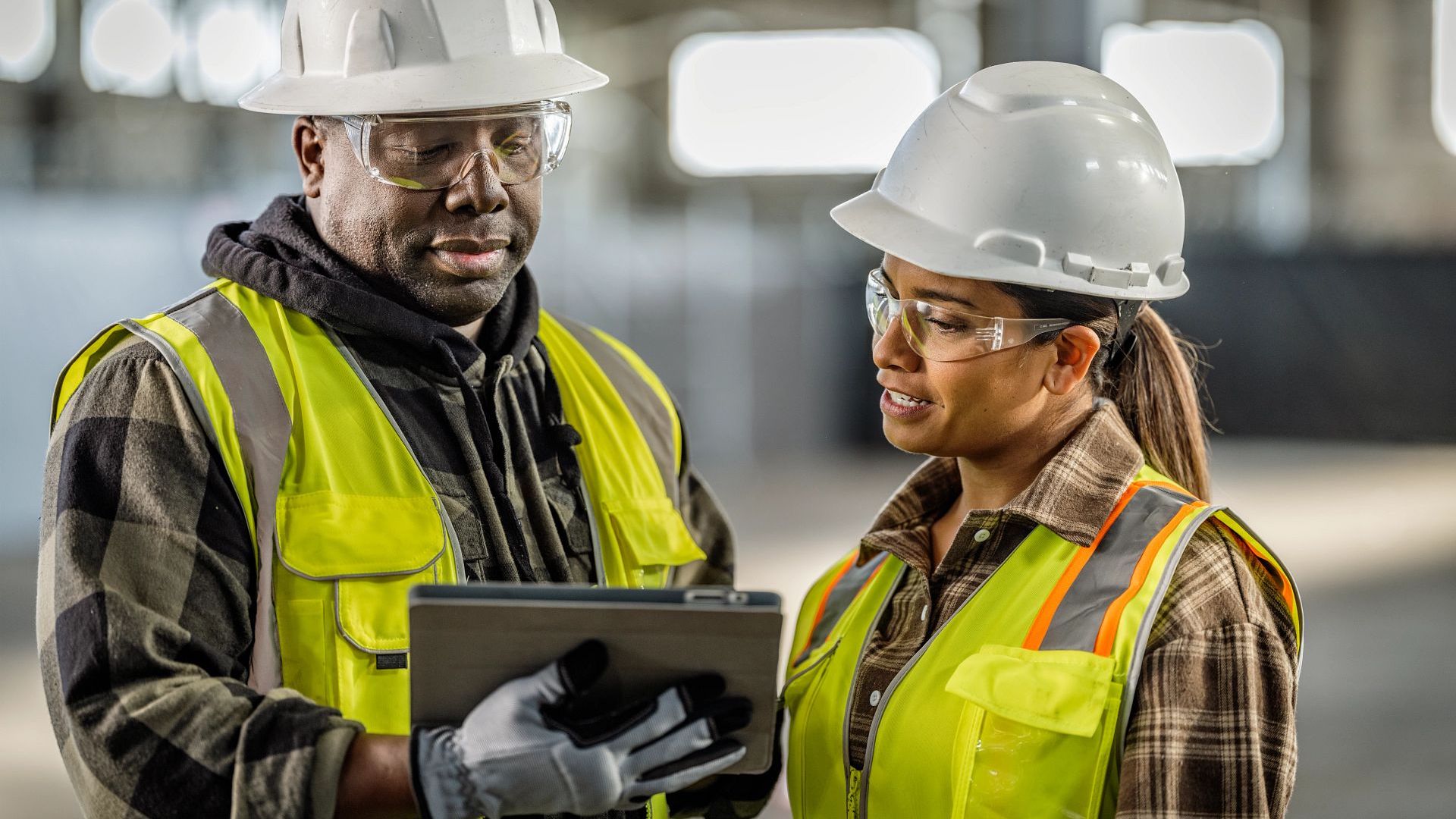
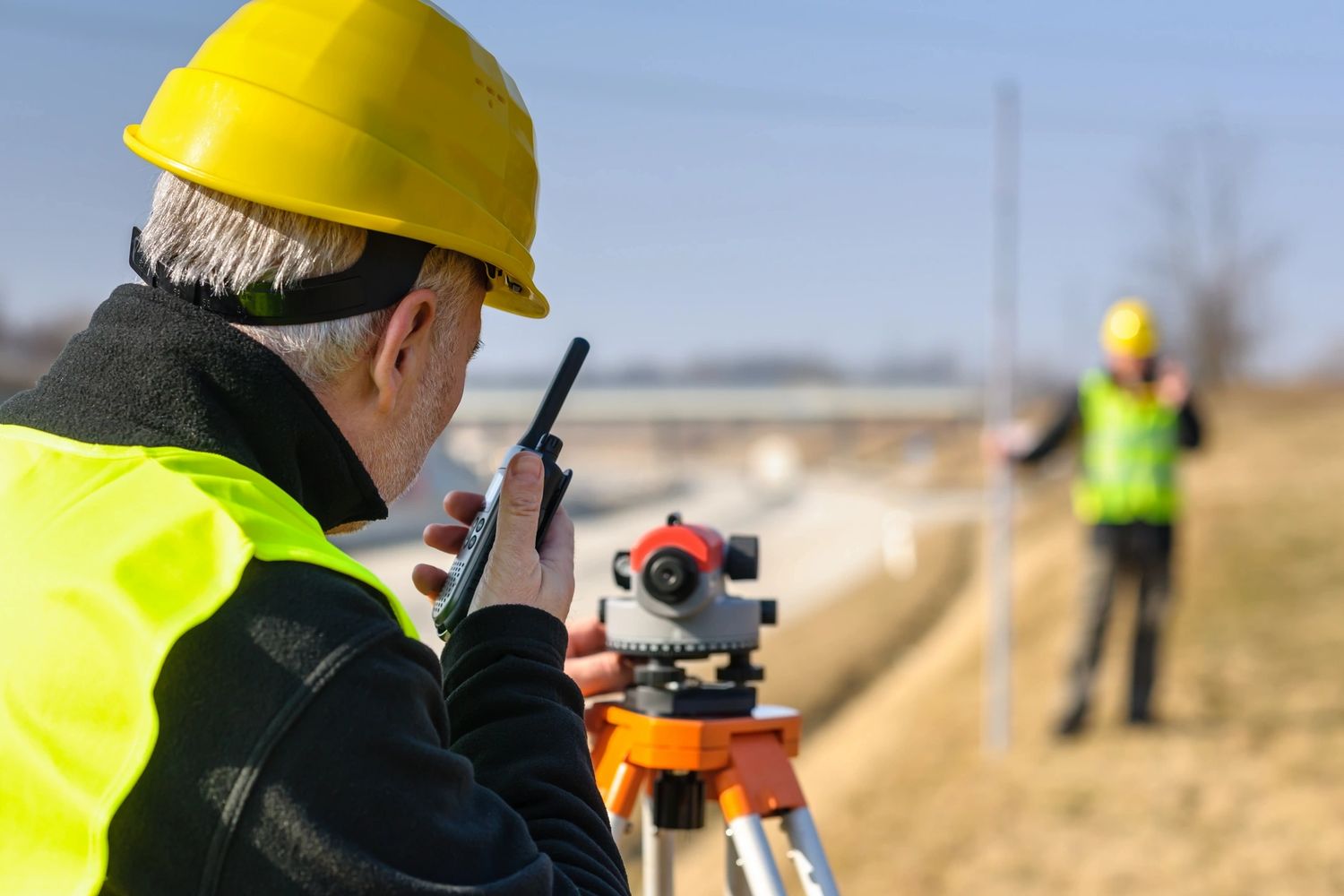
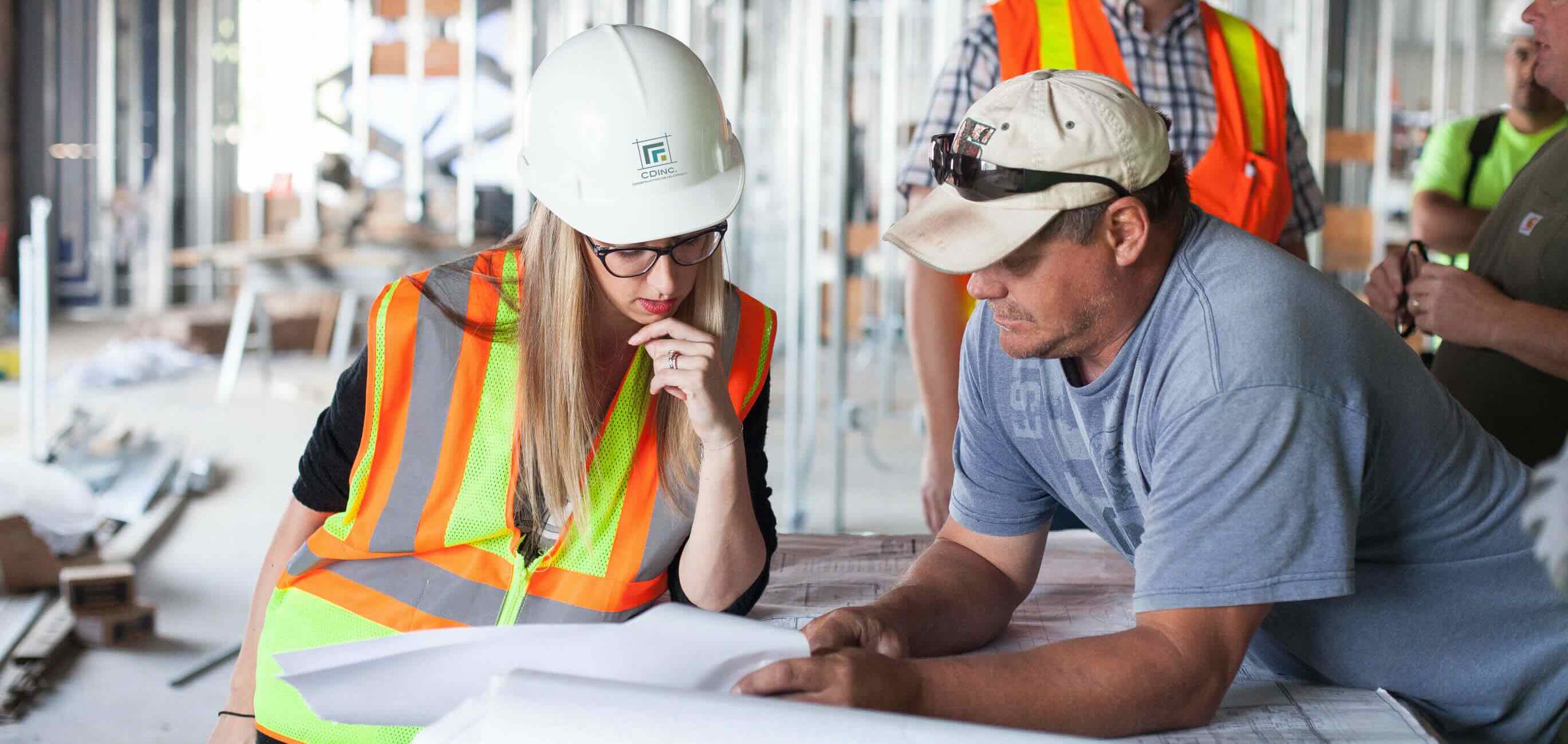
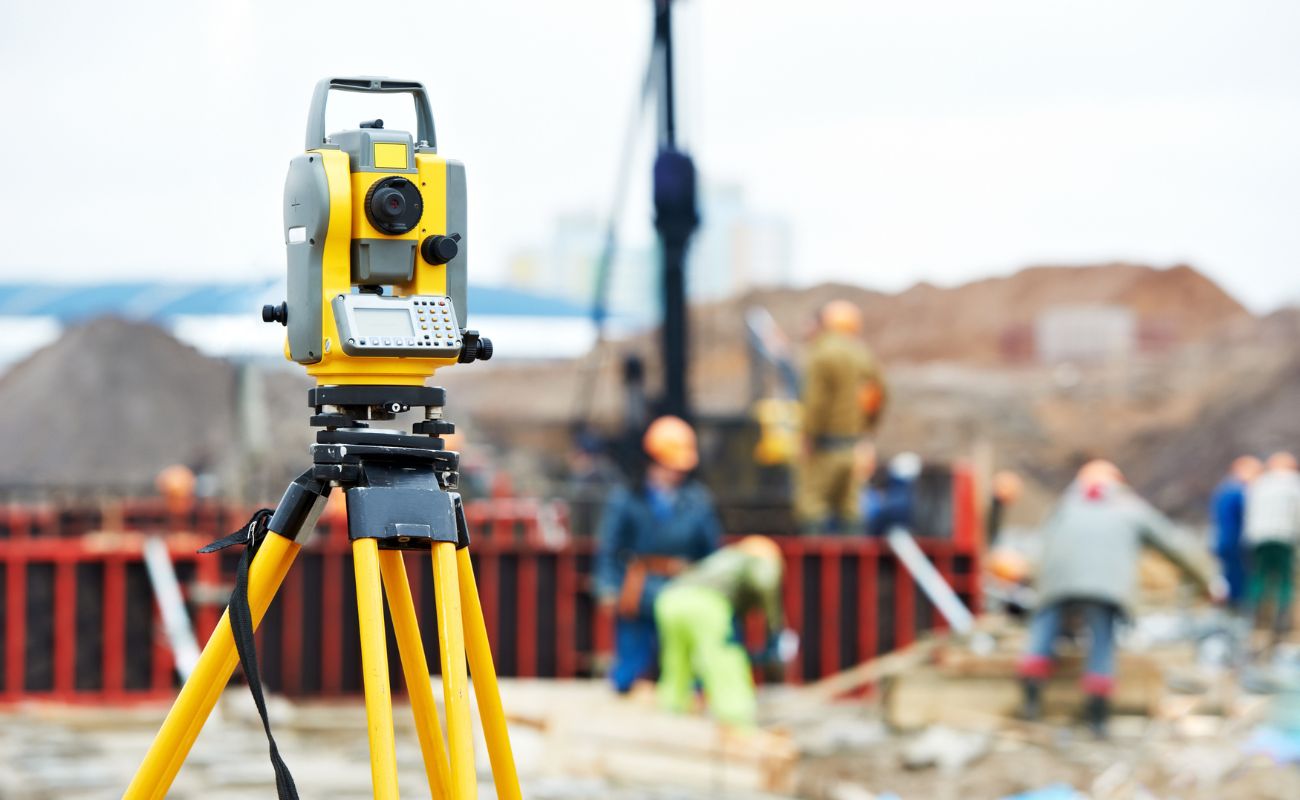

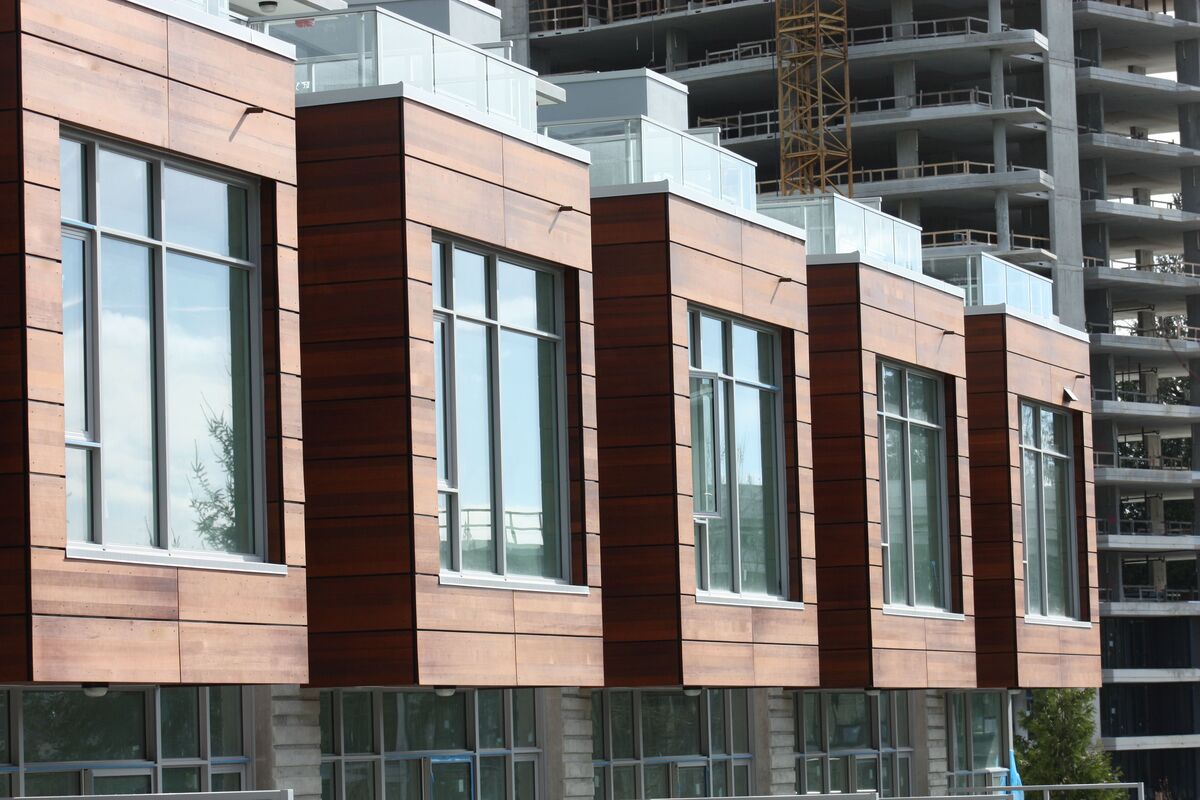
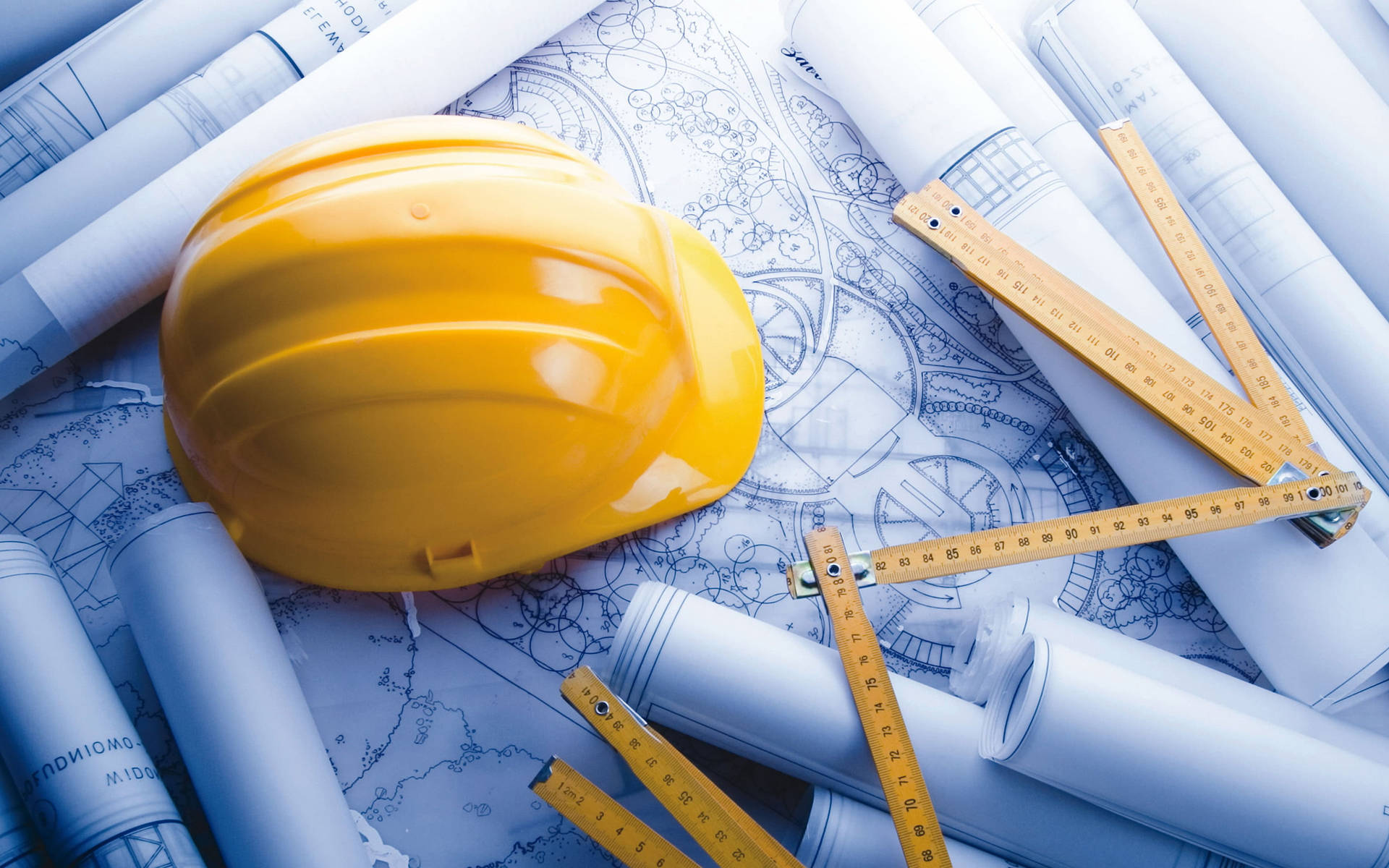
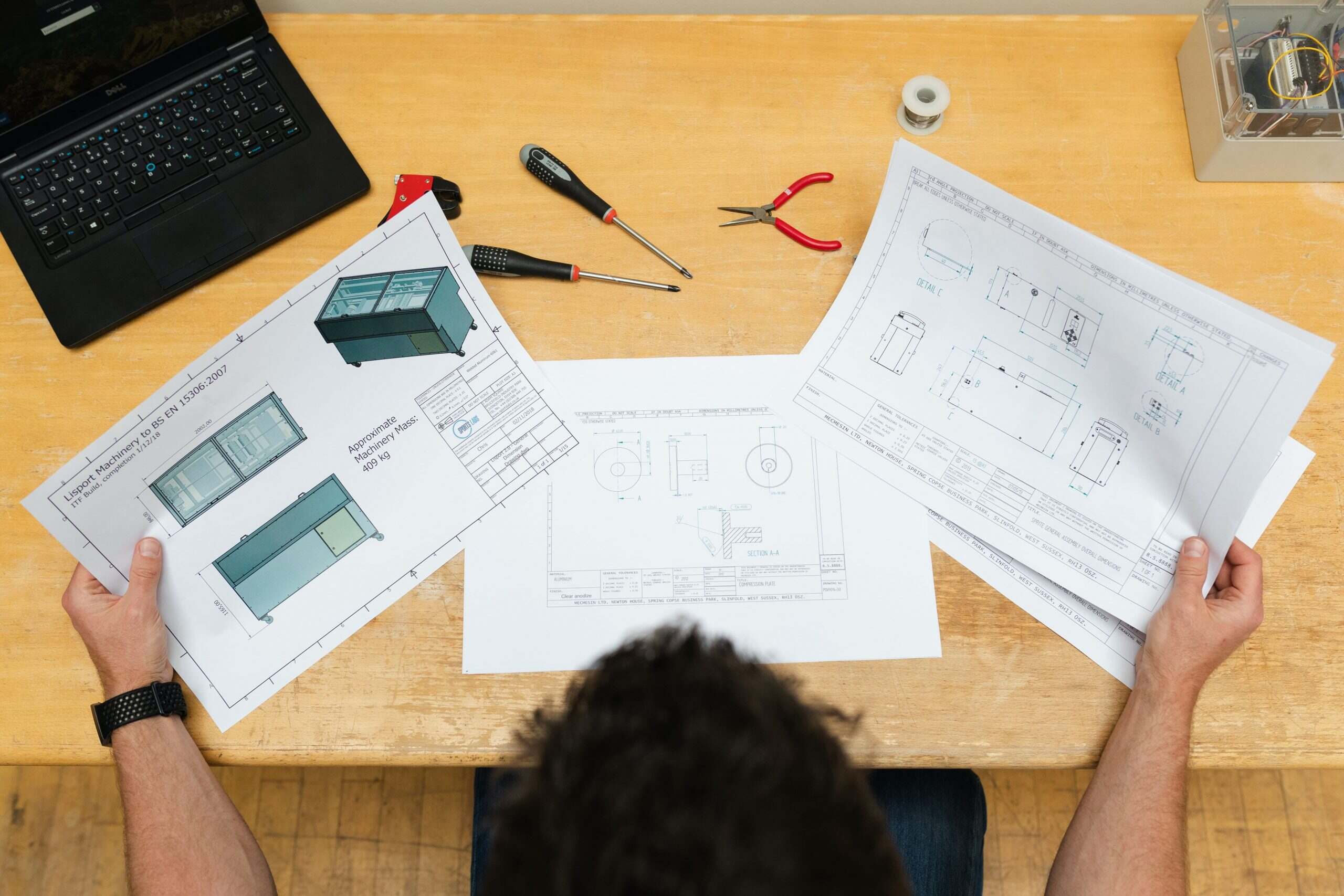
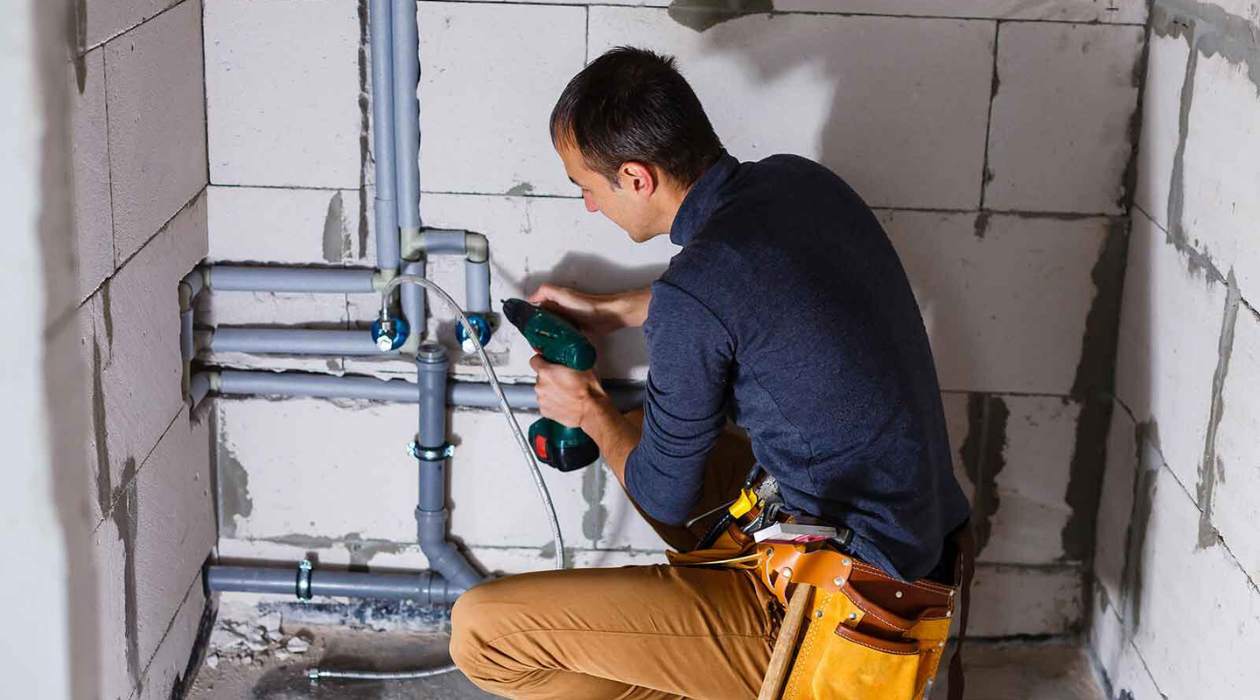
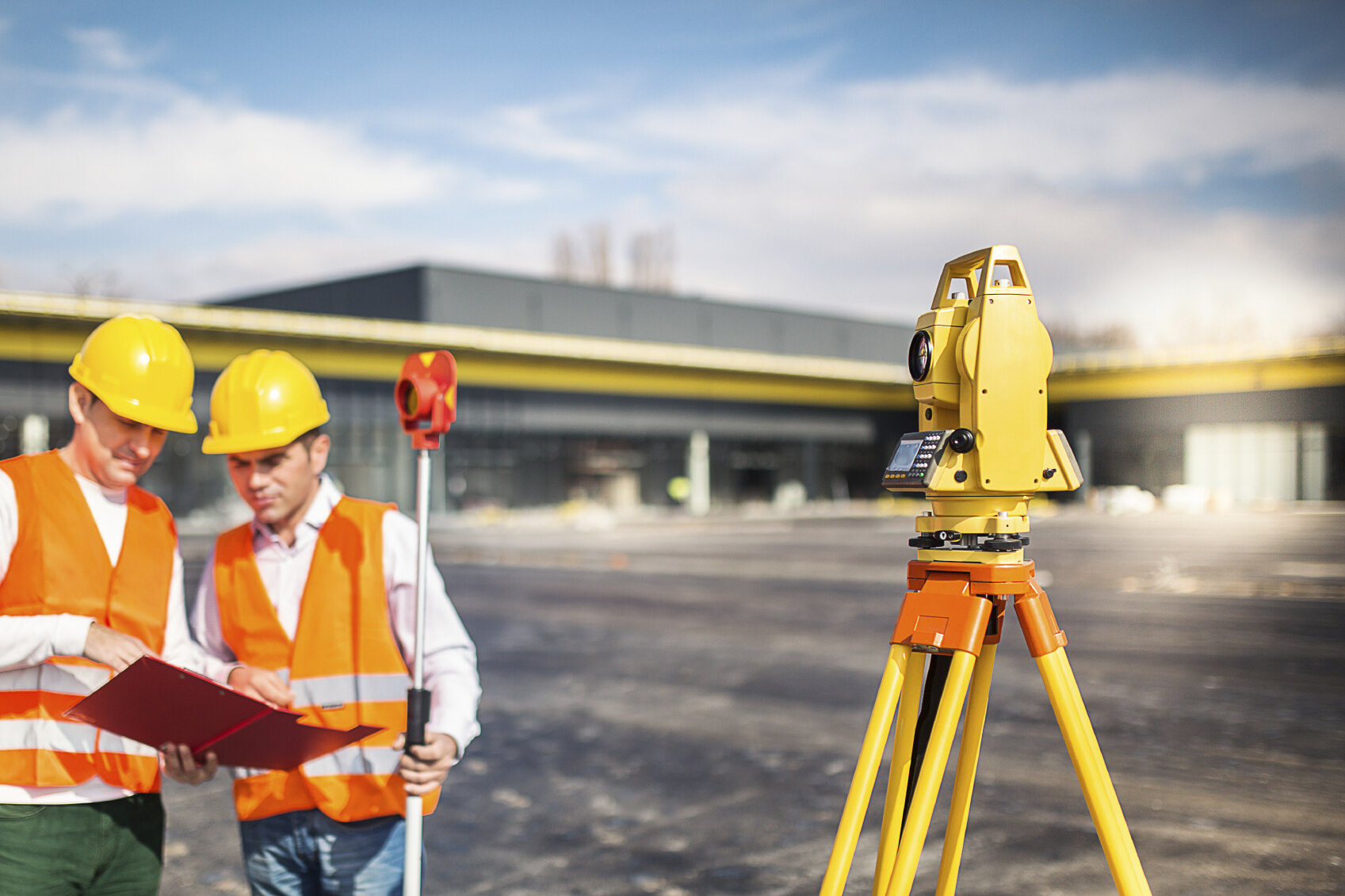
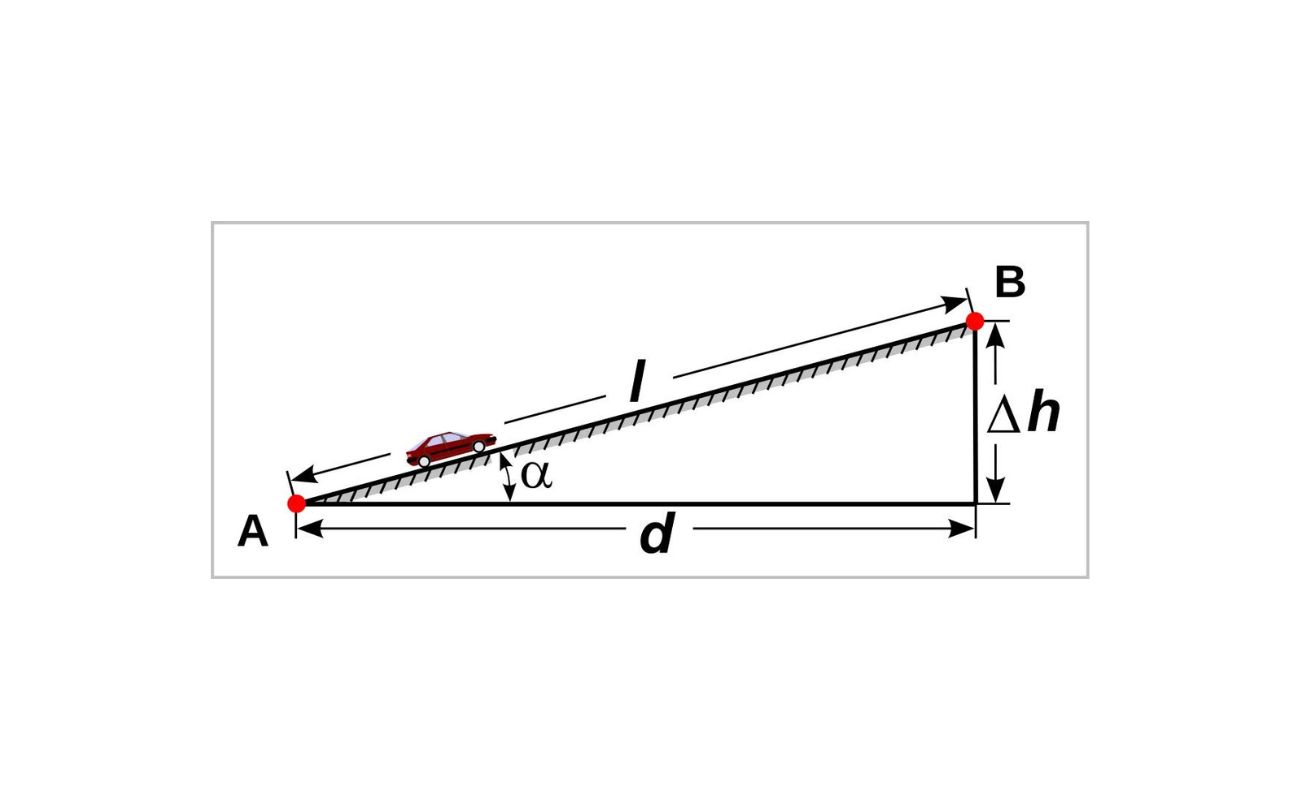

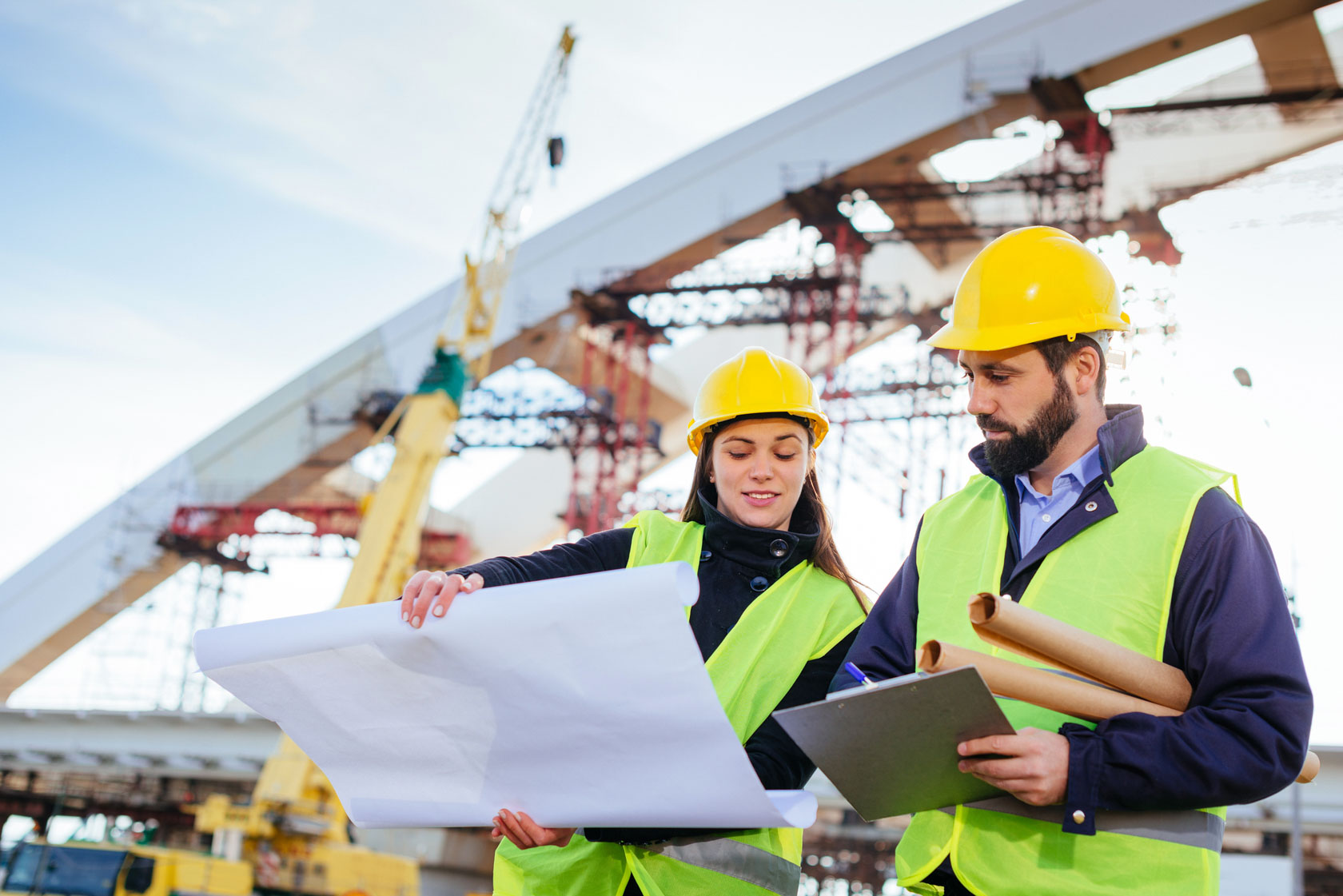

0 thoughts on “What Is A Plumbing Engineer”